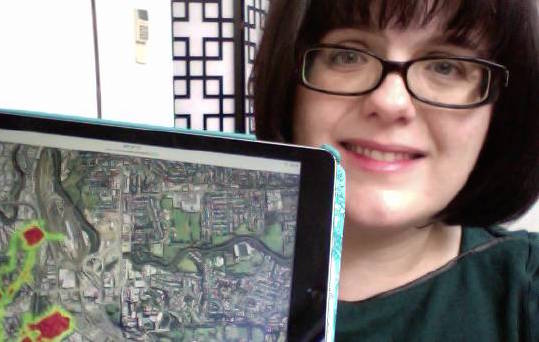My decision to get involved in a research career followed a path that is probably not that unusual for clinical researchers. My background is occupational therapy, and when I completed my degree, I was very determined to work clinically. Even though I had enjoyed the research part of my honours, I had no plans to stay in research and was keen to be out and working in a clinical setting. And then when working clinically, I encountered a difficult situation – one that I thought we could manage better, and to improve outcomes for our clients. I wanted to understand why giving up driving was so difficult for older people, and what we could do to make sure people stayed involved in the community when they stopped driving. We needed to also consider the road safety issues, depression, and isolation that could follow stopping driving. When the literature could not help in my quest, I visited my honours supervisor and told her that “someone should look into this” – and she agreed and suggested that someone be me! The late A/Prof Kryss McKenna was a wonderful and strong influence on my decision to get involved in clinical research and we miss her very much!
I enrolled in a Ph.D. while continuing to work clinically part time. We found really interesting things about the role of driving in people’s time use and well-being and also worked with older people to develop an intervention to help with the transition. This intervention has since been commercialized (www.carfreeme.com.au ).

In between that research and a clinical trial of the intervention, I had two children – and continued to work part time. I went on to investigate other life transitions (like those related to life-changing medical procedures like deep brain stimulation for Parkinson’s disease) and began exploring how best to measure the outcomes related to community life for people with medical conditions. I was involved in work looking at smartphones to measure outcomes for people with Parkinson’s disease (https://www.youtube.com/watch?v=VoF1As-2wu0 ) I am now working with people living with dementia to co-design technology that helps to support their communication. This is a really interesting area to work in and one that has the potential to offer immediate help to people living with dementia. Being able to take a co-design approach really recognises the importance of the lived experience in making technology relevant and accessible, and helps to show our value for the expertise of people living with dementia.
Women in science
I think it is important to be a huge supporter of other women in STEMM areas. Coming from an occupational therapy background, where more than 90% of registered occupational therapists in Australia are women, I have been fortunate to have many excellent role models, mentors, and colleagues who are women. Moving into more male dominated areas of research, including technology, has required some adjustment and some conscious attention to making time to be mentored and to mentor and support others. I am involved in a great program run by two fantastic women (Dr. Maggie Hardy and Ms. Mathilde Desselle) where women in STEMM careers visited rural and regional areas in Queensland (some of our experiences from last year storified here: https://storify.com/DrMaggieHardy/qldstars-storify ).
I also am the mother of two boys – who are very keen on science and technology (but not really my areas – completely different areas!) I find it very important to encourage curiosity and exploration of why things happen. I support their involvement in a variety of interests!
For research careers to be more accessible to women, I think the discontinuity of research-only career paths needs to change. While I have been fortunate to be able to stay involved in research, this has been only because I have a partner who works in a stable industry. Since entering a research career, I have only worked in fixed term positions. I have definitely enjoyed the opportunities to work on different challenges and with different teams – but with short term positions, it is hard to get traction in working on a large issue.
I encourage more health professionals with a burning clinical question and people with lived experience with health issues to consider being part of clinical research! Clinical research really benefits from involving people who live with the issue being a valued part of the team.
You can contact Jacki at j.liddle@uq.edu.au and follow her on Twitter!




